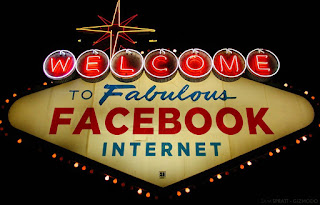By Simon Johnson at The Baseline Scenario
Goldman Sachs is investing $450 million of its own money in Facebook, at a valuation that implies the social networking company is now worth $50 billion. Goldman is also apparently launching a fund that will bring its own high net worth clients in as investors for Facebook.
On the face of it, this might just seem like the financial sector doing what it is supposed to – channeling funds into productive enterprise. The SEC is apparently looking at the way private investors will be involved, but there are some more deeply unsettling factors at work here.
Remember that Goldman Sachs is now a bank holding company – a status it received in September 2008, at the height of the financial crisis, in order to avoid collapse (for the details, see Andrew Ross Sorkin’s blow-by-blow account in Too Big To Fail.) This means that it has essentially unfettered access to the Federal Reserve’s discount window, i.e., it can borrow against all kinds of assets in its portfolio, effective ensuring it has government-provided liquidity at any time.
Any financial institution with such access to such government support is likely to take on excessive risk – this is the heart of what is commonly referred to as the problem of “moral hazard.” If you are fully insured against adverse events, you will be less careful.
Goldman Sachs is undoubtedly too big to fail – in the sense that if it were on the brink of failure now or in the near future, it would receive extraordinary government support and its creditors (at the very least) would be fully protected. In all likelihood, under the current administration and its foreseeable successors, shareholders, executives, and traders would also receive generous help at the moment of duress. No one wants to experience another “Lehman moment.”
This means that cost of funding to Goldman Sachs is cheaper than it would be otherwise – because creditors feel that they have substantial “downside protection” from the government. How much cheaper is a matter of some controversy, but estimates made by my co-author James Kwak (in a paper presented at a Fordham Law School conference last February) put this at around 50 basis points (0.5 percentage points), for banks with over $100 billion in total assets.
Photo: Jr. Deputy Accountant



